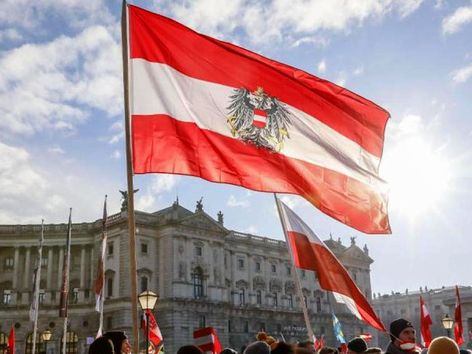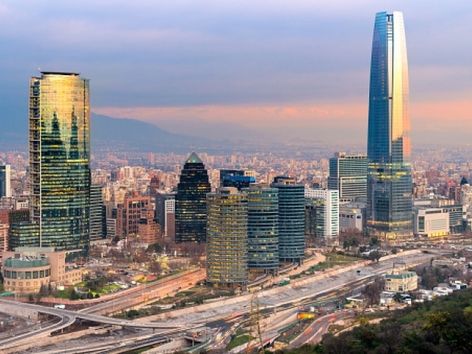How can foreigners legally find employment in Poland in 2024?
Table of contents
- Advantages of employment in Poland
- How is it legal to work in Poland?
- How to issue a work permit in Poland?
- Citizens of which countries do not need a work permit in Poland?
- Who will not be able to get a work permit in Poland?
- How much does it cost to obtain a residence and work permit in Poland?
- The most popular professions in Poland for foreigners
- How can a foreigner find a job in Poland?

Every year, Poland welcomes thousands of expats and provides foreigners with the opportunity to find a job in the country and start building a life. Find out more about why expats choose Poland for relocation, how foreigners can work legally in Poland, how much it costs to obtain a residence and work permit, and other important details
Every year, thousands of foreigners come to work in Poland, because the country has a developed economy, a high standard of living and many workplaces with favorable conditions. However, before starting your career in the state, you should take care of all the necessary documents.
How can foreigners legally get a job in Poland? The current rules that apply in 2024 are described in our new material.
Advantages of employment in Poland
- Poland is a member of the EU, so expats will have the right not only to work in a country with a high standard of living, but also to travel to neighboring countries at any time without obtaining a visa. In addition, the employer must have a registered office in Poland.
- The average salary in Poland is over $800 per month.
- Work in certain positions does not require a high level of qualification.
- Workers are guaranteed to earn twice as much in Poland than in many other countries of the world.
- Poland's economy is stable, so foreigners can count on a safe future.
- The labor policy of the state guarantees that your salary will not decrease, but only steadily increase.
Read more about the advantages and disadvantages of employment in Poland for foreigners in this article.
How is it legal to work in Poland?
To work in Poland, a foreigner must first obtain a work visa to enter the country, and then obtain a residence permit with the right to work.
5 types of work visas are approved in Poland:
● Type A is the most popular type of work visa in the country. It is received by foreigners who are employed under an employment contract/civil law contract with a Polish employer.
● Type B – this work permit is valid if you are a board member of a company and plan to stay in the country for a total period not exceeding 6 months during the year.
● Type C – foreigners whose employer sends them to Poland for more than 30 days in a calendar year to work in a branch or department can apply for this permit.
● Type D - you are entitled to this visa if your foreign employer cannot open a branch or subsidiary in Poland, but temporarily sends you to work in Poland in the field of export services.
● Type E – foreigners whose activities do not fall under any of the above visa types can apply for this permit.
You cannot use a tourist or humanitarian visa to work in the state.
How to issue a work permit in Poland?
Foreigners who arrived in Poland legally with a work visa can apply for a temporary residence and work permit. The document is issued by the voivode according to the single application procedure.
1. Register at the nearest Voivodeship Office - department for foreigners.
2. Prepare the necessary package of documents:
- Application for temporary residence (two copies).
- Four photos that meet visa requirements.
- Valid passport (original and copy).
- Payment of state tax.
- Job invitation from a Polish employer.
Depending on the circumstances, management employees may ask to provide additional documents.
3. Translate all necessary documents into Polish.
4. Submit the documents to the nearest voivodeship, pay the duty and wait for a response.
The foreigner receives one document that allows both to stay and to work in Poland.
Temporary residence permit in Poland is valid from one to three years. It cannot be extended, but you can re-apply for a permit before it expires. After five years, you can apply for a permanent residence permit.
The second type of residence and work permit in Poland is the EU Blue Card. This is a permit for highly qualified professionals who are citizens of non-EU countries. Read more about the document and registration procedure at the link.
Importantly! In order to be able to work legally in Poland, you must first of all be employed on the basis of an employment or civil law contract.
Citizens of which countries do not need a work permit in Poland?
Since Poland is part of the European Union, citizens of EU countries, as well as Switzerland, Norway and Great Britain, can work in Poland without special permits.
In addition, citizens of Armenia, Belarus, Georgia, Moldova or Ukraine do not need to apply for a work permit if they intend to work in Poland for no longer than 6 months a year as a seasonal worker. In this case, the employer will fill out only a few applications.
Who will not be able to get a work permit in Poland?
The following categories of foreigners do not have the right to issue a work permit:
- If the employer is located outside of Poland.
- To those who are in Poland on the basis of obligations established by international agreements regarding the entry and temporary stay of foreigners who carry out commercial operations or investments.
- Have a business in Poland.
- Perform seasonal work in Poland.
- Arrived in Poland on the basis of a tourist visa or to visit family or friends.
How much does it cost to obtain a residence and work permit in Poland?
The cost of a temporary residence and work permit is:
- Consular fee – 440 zlotys;
- The fee for issuing a residence permit is PLN 50.
The most popular professions in Poland for foreigners
● Engineering: industrial and production engineers, concrete engineers, glass engineers and electrical engineers.
● Doctors and nurses.
● IT sector: computer systems analysts, information systems development specialists, network and multimedia programmers, application programmers, designers, database administrators, etc.
● Scope of services: employees of the hotel and restaurant sector, sellers, couriers.
● Construction and repair specialists: painters, concrete workers, flooring specialists, plasterers.
How can a foreigner find a job in Poland?
Most expats look for jobs in Poland online, here are some of the most popular sites: Worksop, JobPolska, Career in Poland, Oferty.praca, Praca.pl, Indeed, CareerJet.
Ihor Usyk - head of Visit World's legal department
For a safe move to Poland, obtaining refugee status and employment, use the advice of an international lawyer.
We help to solve complex and simple issues for your comfort and safety in Poland.
Products from Visit World for a comfortable trip:
Checklist for obtaining a visa and necessary documents in Poland;
Legal advice on immigration to Poland;
Travel insurance for foreigners in Poland;
Medical insurance around the world.
Recommended articles
1 min
Work
Work in Poland for foreigners in 2024: pros, cons and how the employment process works (updated)
Poland allows foreigners to work in the country. Learn more about the advantages of employment in Poland, whether there are disadvantages of working in the country and how to find jobs
27 mar. 2024
More details3 min
Employment
Employment in Austria in 2024: popular vacancies and salaries
Due to the high standard of living and decent salaries, more and more labor migrants are choosing Austria for permanent residence. Find out more about the labor market, popular vacancies and average salaries in Austria in 2024
22 maj. 2024
More details3 min
Expats
Main advantages of Chilean citizenship: important nuances
According to Henley & Partners, Chile's passport is considered one of the most powerful, ranking 16th in the world and first in Latin America. Learn more about the main benefits that Chilean citizens can enjoy in 2024
21 cze. 2024
More details1 min
Residence permit
The Government of Portugal approved a new Action Plan on migration issues, in particular, the procedure for moving to the country for the purpose of employment has become more complicated. Find out what changes to expect for citizens of non-EU countries
20 cze. 2024
More detailsAll materials and articles are owned by VisitWorld.Today and are protected by international intellectual property regulations. When using materials, approval from VisitWorld.Today is required.
